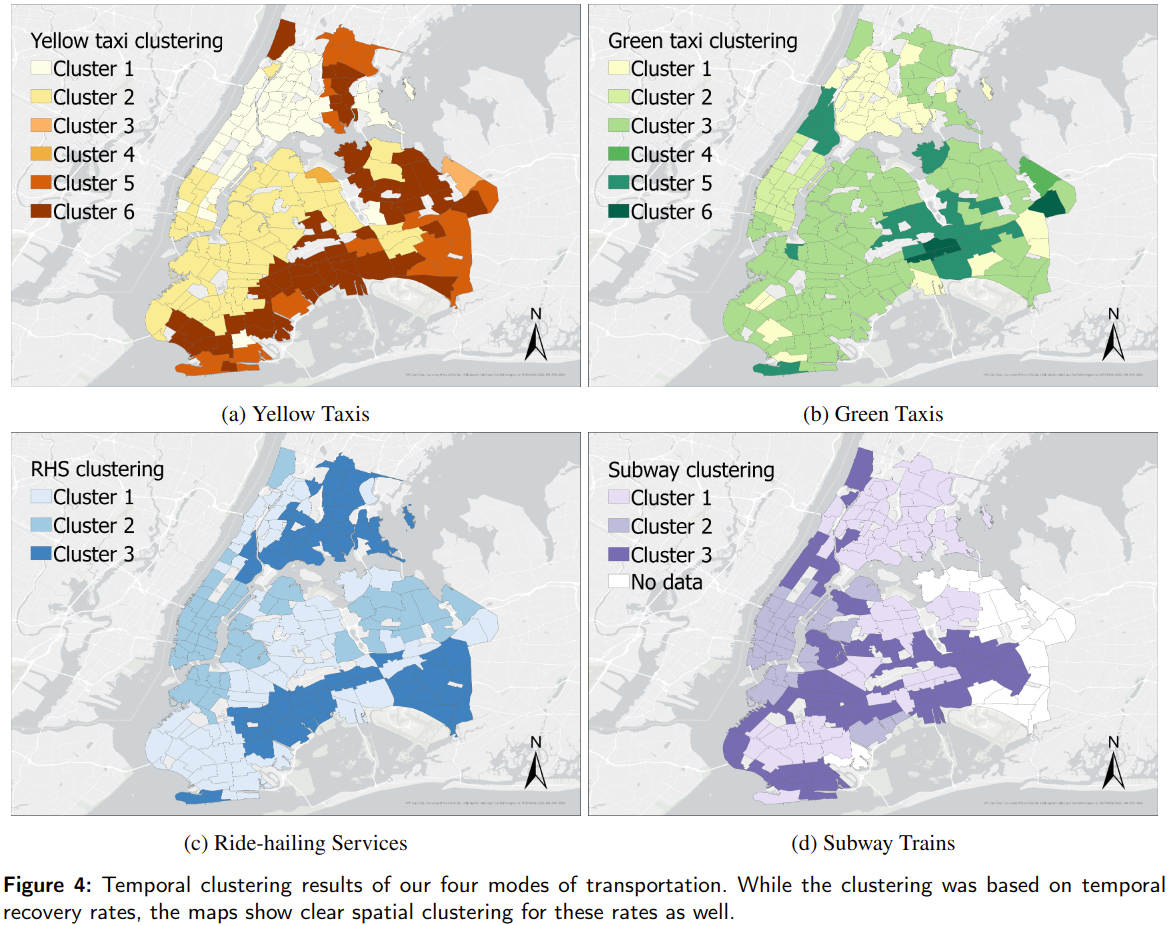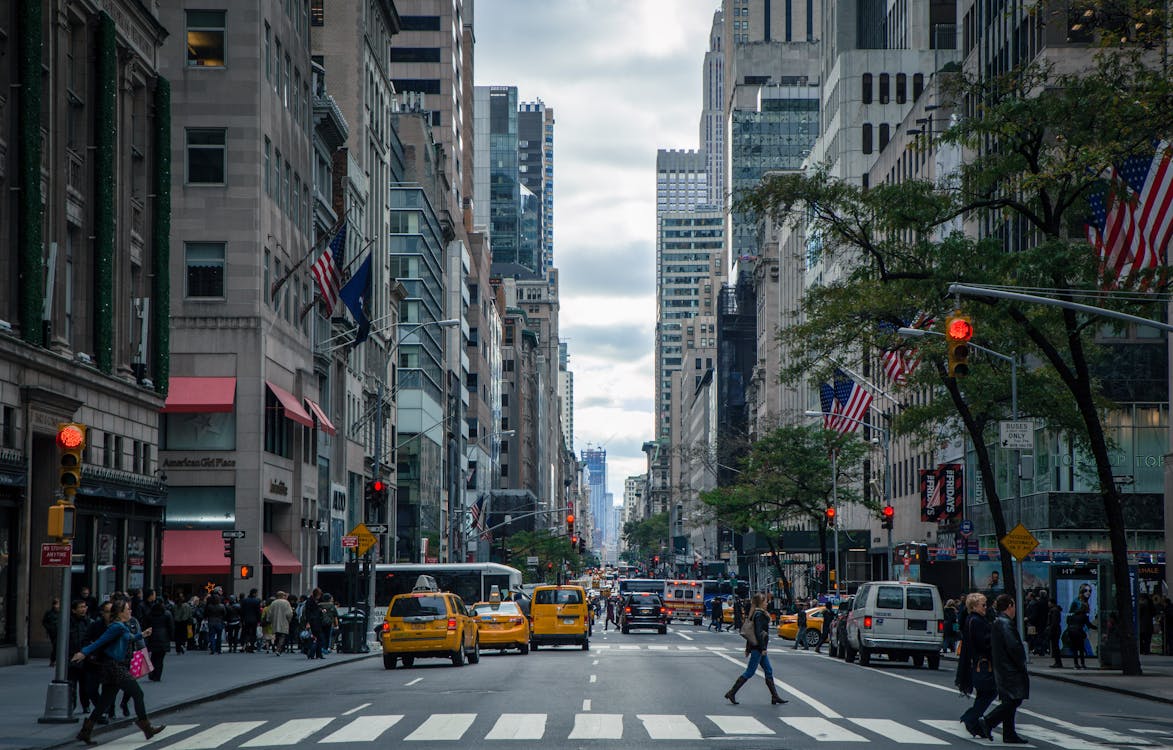In a new paper titled Navigating the post-pandemic urban landscape: Disparities in transportation recovery & regional insights from New York City, lab member, Dan Qiang leads a comprehensive exploration of how the COVID-19 pandemic has reshaped transportation systems in New York City, highlighting the disparities in recovery across different modes of transport and neighbourhoods. Utilizing four years of extensive data, the study emphasizes the resilient nature of ride-hailing services compared to taxis and subways, which faced varied recovery trajectories. The research underlines the significant role socio-economic and demographic factors play in influencing transportation recovery, where neighbourhoods with lower median incomes and higher racial diversity saw quicker rebounds in mobility. Notably, the study introduces an innovative approach by employing clustering techniques and spatial regression analysis, offering new insights into the spatial disparities in recovery patterns within the city. This nuanced analysis not only contributes to our understanding of urban resilience and mobility post-pandemic but also informs future urban planning and public health strategies, advocating for more equitable transportation policies and investments in critical infrastructure to support diverse urban communities in times of crisis.
Elsevier’s formatting (pay-wall) here: https://doi.org/10.1177/23998083241240195
Authors’ formatting (free) here: https://grantmckenzie.com/academics/Qiang_2024.pdf


